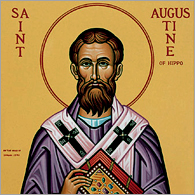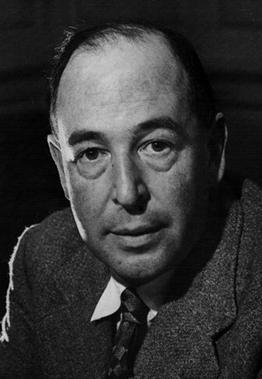Even more of an exaggeration comes from the geocentrists who continue to insist that the 1633 decree was a “papal decree”, backed up explicitly by the authority of the pope. But it bears repeating here what I have demonstrated in detail elsewhere, namely, that the 1633 decree of the Holy Office is not a papal document. As the Catholic Encyclopedia states, “The sentence, passed upon him in consequence, clearly implied a condemnation of Copernicanism, but it made no formal decree on the subject, and did not receive the pope’s signature.” (Galileo)
As I have written previously, some Vatican documents are reviewed by the Pope and ordered to be published by him, but they only carry the authority of the curial dicastery that actually wrote the document and do not carry the authority of a papal document or act. Such documents are referred to as having been approved in forma communi. Other documents are reviewed by the Pope and approved by him in a special way such that they are officially made “his own” and therefore acquire the full authority of a formal papal act. Such documents are referred to as having been approved in forma specifica. When a Pope wants to elevate the weight and authority of a document from in forma communi to in forma specifica all he must do is to sign it with the Latin phrase in forma specifica approbavit (Consecrated Phrases: a Latin Theological Dictionary, p. 62).
But the fact is that the 1633 decree against Galileo was never approved by the pope in forma specifica. Therefore it is not a papal decree, period. Fr. Brian Harrison was correct when he wrote that, “Rome’s 17th-century insistence on geocentrism . . . was never promulgated directly and personally by any Pope”.
We are left with a disciplinary decree of a Roman congregation which, while authoritative, could not bind the Catholic Church to a doctrine as an article of faith and is not infallible. As Dr. Ludwig Ott states:
With regard to the doctrinal teaching of the Church it must be well noted that not all the assertions of the Teaching Authority of the Church on questions of Faith and morals are infallible and consequently irrevocable. Only those are infallible which emanate from General Councils representing the whole episcopate, and the Papal Decisions Ex Cathedra (cf. D 1839). The ordinary and usual form of the Papal teaching activity is not infallible. Further, the decisions of the Roman Congregations (Holy Office, Bible Commission) are not infallible. Nevertheless normally they are to be accepted with an inner assent which is based on the high supernatural authority of the Holy See (assensus internus supernaturalis, assensus religiosus). The so-called “silentium obsequiosum.” that is “reverent silence,” does not generally suffice. By way of exception, the obligation of inner agreement may cease if a competent expert, after a renewed scientific investigation of all grounds, arrives at the positive conviction that the decision rests on an error (Fundamentals of Catholic Dogma, p. 10; emphasis mine).
It is noteworthy that Catholic theologians who wrote immediately after the 1633 decree—even though they upheld the Church’s censure of Copernicanism—noted openly that it did not establish geocentrism as a dogma, had not been formally approved by the pope, and could certainly be reformed. Here is a lengthy but highly pertinent citation from the Protestant scholar Karl von Gebler:
We may remark here, that according to these principles the doctrine of Copernicus was not made heretical by the sentence of the Inquisition, because the decree never received the Pope’s official ratification. To confirm this statement we subjoin some remark by theological authorities. Gassendi remarks in his great work, “De motu impress a motore translato” (Epist. Ii. T. iii. P. 519), published nine years after the condemnation of Galileo, on the absence of the papal ratification in the sentence of the Holy Tribunal, and that therefore the negation of the Copernican theory was not an article of faith. As a good priest he recognizes the high authority of a decision of the Congregation, and subjects his personal opinions to it. Father Riccioli, in his comprehensive work, “Almagestum novum,” published nine years after Gassendi’s, reproduces Gassendi’s statement word for word (t. i., pars. 2, p. 489), and entirely concurs in it, even in the book which was meant to refute the Copernican theory at all points (pp. 495, 496, and 500). Father Fabri, a French Jesuit, afterwards Grand Penitentiary at Rome, says in a dissertation published there in 1661 against the “Systema Saturnium,” of Huyghens (p. 49), that as no valid evidence can be adduced for the truth of the new system, the authorities of the Church are quite right in interpreting the passages of Holy Scripture relating to the universe literally; “but,” he adds, “if ever any conclusive reasons are discovered (which I do not expect), I do not doubt that the Church will say that they are to be taken figuratively,” a remark which no priest would have made about a doctrine pronounced heretical by infallible authority. Caramuel, a Spanish Benedictine, who also discussed the future of the Copernican theory, defines the position still more clearly than Fabri. In his “Theologia fundamentalis,” published at Lyons in 1676 (t. i., pp. 104-110), after defending the decree and the sentence of the Congregation, he discusses the attitude which the Church will take in case the system should prove indisputably true. In the first place he believes this will never happen, and if it does, it could never be said that the Church of Rome had been in error, as the doctrine of the double motion of the earth had never been condemned by an Œcumenical Council, nor by the Pope speaking ex cathedra, but only by the tribunal of cardinals.
It is interesting to find that Descartes, Galileo’s contemporary, put the same construction on the matter. He wrote on 10th January, 1634, to Father Mersenne: “As I do not see that this censure has been confirmed either by a Council or the Pope, but proceeds solely from the congregation of cardinals, I do not give up hope that it will not happen to the Copernican theory as it did to that about the antipodes, which was formerly condemned in the same way.” (Panthéon littéraire, Œuvres philosophiques de Descartes, p. 545.) (see Gebler, Galileo Galilei and the Roman Curia, trans. J. Sturge, London: C. Kegan Paul & Co., 1879, 235n1).
And so a faithful Catholic is free to take a sort of maximalist view which holds that the Holy Office was correct in its censure of Galileo in 1633, although as I demonstrated above this still does not extend the content of the 1633 decree beyond a strict Copernicanism. But a faithful Catholic could also, after due deliberation and consultation of expert sources, conclude that this decree from the Congregation of the Holy Office erred in its censure of Galileo. We will see some potential grounds for this conclusion in the material presented below.



